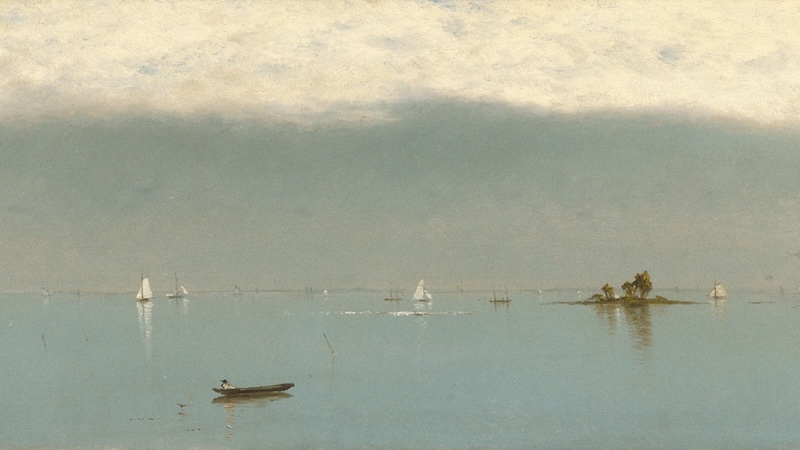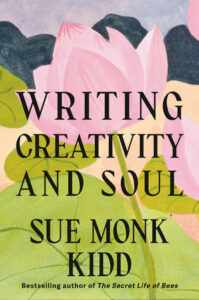This first appeared in Lit Hub’s Craft of Writing newsletter—sign up here.
The creative act of writing has brought meaning into my life in myriad ways, but it made itself known initially in the experience of flow. I’m referring to the sense of personal fulfillment that comes from giving yourself over to something you feel you can belong to, setting a worthwhile and challenging goal, and then giving that goal your full attention, commitment, and energy. Mihaly Csikszentmihalyi identified this process as “optimal experience” or “flow.” It’s “the state in which people are so involved in an activity that nothing else seems to matter,” he wrote. “The experience itself is so enjoyable that people will do it . . . for the sheer sake of doing it.”
Often when I’m writing, I lose all track of time. I look up and two hours have gone by and it feels like twenty minutes. For over a decade, whenever I’d been at work for an inordinate amount of time and the dinner hour neared, it was standard practice for Sandy to send our Labrador retriever, Lily, to fetch me. All he had to say was, “Go, get your mother,” and she would bound into my study with a tennis ball in her mouth and drop it beside my feet. Sending in the dog was about the only thing that could shoehorn me out of my chair. The immersion and concentration seem to bring my thoughts, feelings, senses, and intentions together into one unified stream that I experience as deep pleasure, fulfillment, and meaning.
*
Amy Tan says she writes in part “to startle my mind, to churn my heart, to tingle my spine.” I identify with that. It sounds like flow to me. But what specifically is involved in finding this state as a writer? Many years ago while reading Ray Bradbury’s Zen in the Art of Writing, I came upon what seemed like a prescription for tapping into flow. Bradbury believed that meaningful writing derives from the overlapping process of three things: Work. Relaxation. Don’t think. I found his approach compatible. I’ve tried to follow it ever since.
There’s a perception that when you’re in a state of flow, the writing should flow almost effortlessly. I’ve bumped into this notion from writers over the years. In the beginning, I, myself, thought that if I was meant to write, then why did it often feel like I was swimming upstream. Shouldn’t it come more easily? Actually, though, to be in a state of flow, hard work is involved. The work should present a challenge, requiring us to labor, learn, and struggle. According to Csikszentmihalyi, the work should stretch our limits. The depth of meaning we draw from the experience is often related to how hard we have to strive for it.
I begin to feel it in my body, this little dawning. Somehow I write all the way to the final page. And then, when I type the last sentence, it happens: I burst into tears. This odd little wonder has occurred every single time.
I’ve never considered any book I’ve written as easy. Each one pushed the boundaries of what I thought I could do. Each book demanded more of me than the one before it. Starting a book, I always get an image of standing on a metaphorical cliff overlooking a deep lake, wondering whether to dive in and try to swim to the other side. It seems beyond me.
If I have any sort of repetitive visualization in my writing life, it’s seeing myself take the plunge, believing that somehow, someway, with diligent work, I’ll get to the other side.
Writing, it turns out, is a difficult joy.
*
Bradbury puts an unexpected emphasis on finding a relaxed state in which to write. He argues that it’s actually the hard work that gives you the experience and confidence you need in order to be at ease with what you’re doing. And being at ease is crucial.
When I began work on my second novel, I was not at ease. During that time, an interviewer asked me what I was working on. After I described my new book, she said, “It must be hard knowing your readers expect you to live up to The Secret Life of Bees.” I already understood that expectations for my second novel were high. I’d heard about the so-called second novel syndrome, with its built-in pressure, but the interviewer’s comment brought it into sharp focus. I’m grateful for the success of The Secret Life of Bees in every bone of my body, but that success suddenly triggered an acute case of performance anxiety. I began to question the idea for my new novel. I fretted over how my publisher, my readers, and reviewers would respond to it. I doubted every paragraph I wrote, growing increasingly paralyzed. I remained captive in this special corner of writer hell for three months.
Until one day I simply got sick of it. I told myself that my job was to be true to myself as a writer and to write the best novel I could according to my own vision of it and not concern myself with external expectations or whether or not it succeeded. I vowed to leave the pressure of “living up” to Bees outside my writing study. Once I let go of that, I began to relax into the work. It entailed renewing trust in my imagination, my subconscious, and my hard work. It meant following my own thread and being okay with that.
*
The most curious part of Bradbury’s strategy is Don’t Think. He writes that the combination of work and relaxation makes not thinking possible. “The artist must work so hard, so long, that a brain develops and lives, all of itself, in his fingers,” he writes, insisting that the writer can do this as well.
My take on Don’t Think is that becoming overly cerebral, stuck exclusively in my head, inhibits flow. I want to use my head, obviously, but I know now there’s also something inside us that wants to guide the work, something true and innate to the writer, a mystery that can’t be rationalized, only experienced. It’s possible to think with the heart, the soul, and the body. When I manage to slip out of my head and listen to what comes from deeper voices inside, I’m apt not only to find flow, but as Bradbury says, to “make contact with that thing in yourself that is truly original.”
There are times when I’m writing and the words leak out slowly. It’s like wringing water out of a damp washcloth. Other times the words slip into my fingers, raw and unkempt, but alive, and I try to trust them, sensing they’re coming from a deeper place, from the “breathings of the heart,” as Wordsworth described it, or from the unconscious—the pulsing creative matrix at the bottom of the lily-pad pond. The truth is, even the words wrung from the damp cloth can be trustworthy, too. Sometimes the soul, like the oyster, forms its pearls slowly, with grit and effort.
*
I’ve always found this statement by Gabriel García Márquez awing: “The writing became so fluid that I sometimes felt as if I were writing for the sheer pleasure of telling a story, which may be the human condition that most resembles levitation.” The likelihood is that this high state of flow could only come from someone who’s taken on what is for them a remarkably hard task and found the work immersive, even soulful.
A funny thing occurs when I finish a book. I should first tell you, I’m not a fast writer. I’m a turtle. Slow and steady. I would like to be a hare and write quickly, but it’s my nature to plod, not dash. I average three plus years of writing per book, intense years of constant striving. In the beginning, writing the book has an air of impossibility about it. I wonder if I can pull it off. Slowly, slowly, it starts to emerge. I begin to feel it in my body, this little dawning. Somehow I write all the way to the final page. And then, when I type the last sentence, it happens: I burst into tears. This odd little wonder has occurred every single time. A blissful, floating feeling lingers in me for days (before the nervousness sets in). Some would say it’s brought on by pure relief, and maybe there’s some truth in that, but I’ve come to think of this outbreak of joy as the culmination of an endeavor that gives my life meaning. I suppose it’s the closest I come to levitating, too.
____________________________________
Excerpted from Writing Creativity and Soul. Published October 2025 by Alfred A. Knopf, an imprint of The Knopf Doubleday Publishing Group, a division of Penguin Random House LLC. Copyright © 2025 by Sue Monk Kidd.
Audio excerpted with permission of Penguin Random House Audio from WRITING CREATIVITY AND SOUL by Sue Monk Kidd, excerpt read by Jane Oppenheimer. Sue Monk Kidd ℗ 2025 Penguin Random House, LLC. All rights reserved.

